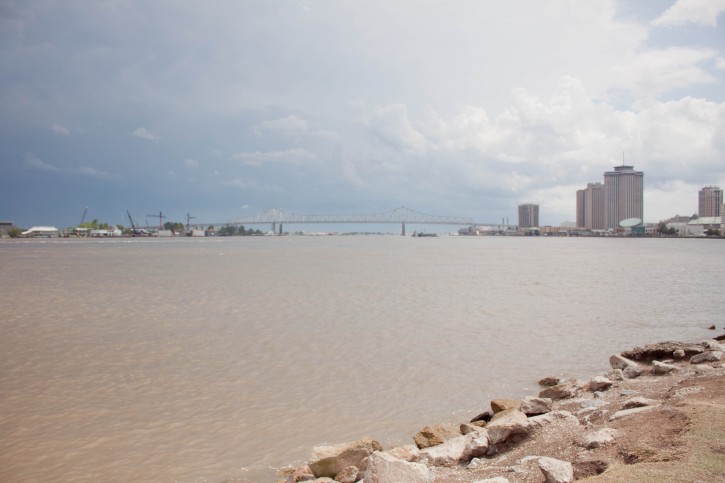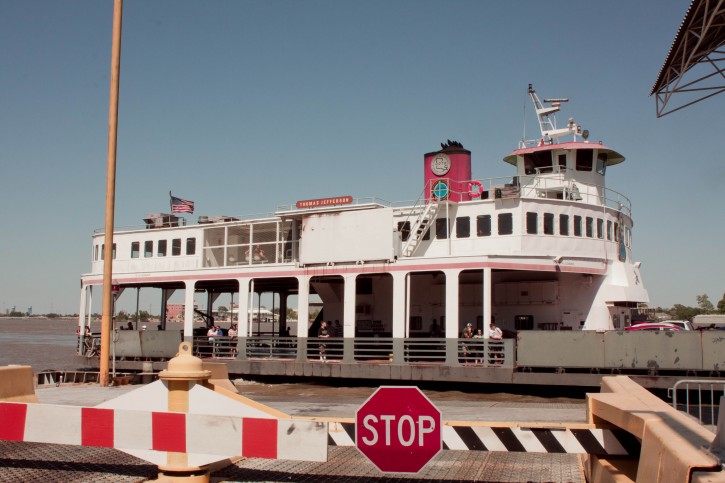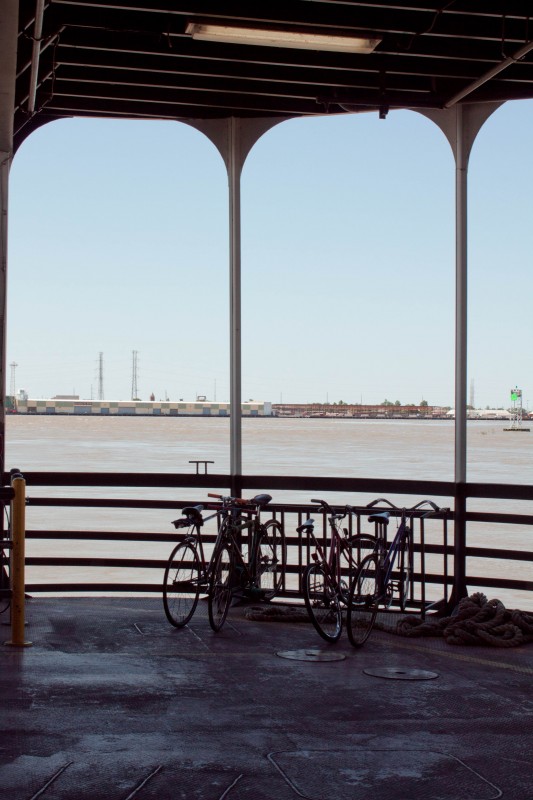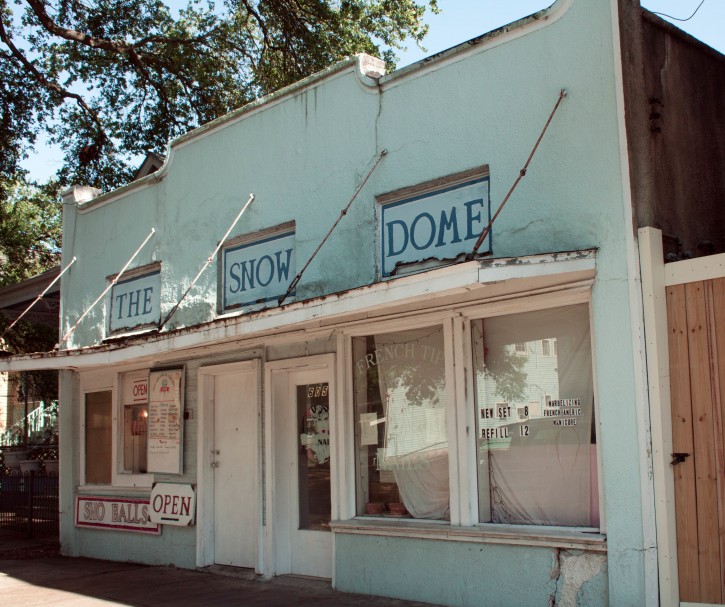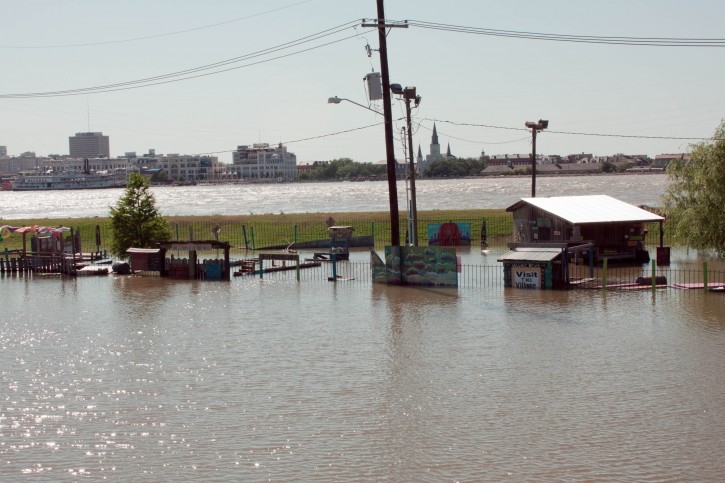The water was cold. It was thick, like slush ice. Only it kind of lived. One part of you knowed it was just water, the same thing that had been running under this same bridge for a long time, yet when them logs would come spewing up outen it, you were not surprised, like they was a part of the water, of the waiting and the threat. — William Faulkner, As I Lay Dying
The river is wide and high. Tree tops peak out of the muddy water, hinting at the depths below, which is normally dry land. A staircase off the Moonwalk in the French descends into the river like a blind plank walk. A playground on the banks of Algiers is almost completely hidden. But the weather is mild and the steadily rising tide is easy to ignore somehow, despite the sense that everything in this city seems related to Katrina, in a way diminishing the city’s history prior to the disaster. Maybe because everywhere you turn you come back to the river, the way the city curves around all those bends earning its nickname, the Crescent City. But there is more than fear associated with the waters, commerce, joy even. At the End of the World, three men were fishing for catfish, cleaning up, pulling large, ugly, slippery things from the water, some weighing as much as 50 pounds.
The tide continued to rise and rural outskirts were flooded, deferring anymore damage to the city for now. Reports from other cities, other countries, of floods, tornadoes, hurricanes and droughts are just as alarming and the scary thought that extreme weather is now normal is not so easy to ignore.
That’s the one trouble with this country: everything, weather, all, hangs on too long. Like our rivers, our land: opaque, slow, violent; shaping and creating the life of man in its implacable and brooding image. –William Faulkner, As I Lay Dying
